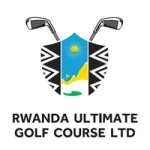Cordaid is an internationally operating value-based emergency relief and development organisation, working in and on fragility. We stand with those who are hit hardest by poverty and conflict. We support them in their struggle to move beyond survival and to fully participate in equitable and resilient societies.
Terms of Reference for a deep dive assessment
|
Title of the assignment: |
A deep dive assessment under Climate Finance |
|
Contact person: |
|
|
Period |
30th June – 30th July 2024 |
Background
The Cordaid Rwanda and Rabo Foundation project is designed to empower smallholder farmers to effectively adapt to climate change. This is realized by supporting four Microfinance Institutions (MFIs) in Rwanda to become climate finance ready, enabling them to offer climate-sensitive and resilient financial services to smallholder farmers. The project will capitalize on existing opportunities in the financial market and collaborate closely with the government-supported initiatives. Anticipated outcomes build on the track record of Cordaid Rwanda in access to finance, value chain development, and a market system development approach.
Concretely, the project will result in:
- 5,000 smallholder farmers with enhanced access to climate finance.
- 4 MFIs enabled to offer climate-sensitive and resilient financial services to smallholder farmers.
- At least 2 MFIs have institutionalized the green finance in their systems.
As outlined above, the project has the ambition to enhance the resilience of farmers to the impacts of climate change on agriculture. It will therefore promote products, services and techniques for climate resilient agriculture. To inform these interventions, the project needs to understand the current practices of MFIs, farmers and the availability of potential climate resilient products and practices in the proposed value chains.
The scope of the assignment
Cordaid invites interested bidders (individual and firm) to respond to the following call for proposals. The Consultant needs extensive experience in value chain analysis and experience in developing climate sensitive agri-finance products and services. The proposed products and services should be based on smallholder farmers’ needs and fall within the limitations of partners MFIs. The products should stimulate climate resilience in the concerned value chains.
Under this project, Cordaid is partnering with four microfinance institutions. These MFIs have progressed differently in developing climate sensitive agri-finance products and services and are interested in different value chains.
|
Name of MFI |
Headquarter location |
Value chain interested in |
|
Umutanguha finance plc |
Kigali |
Coffee, Irish potatoes, rice, maize and beans |
|
Inkunga finance plc |
Karongi |
Agro-forestry and coffee |
|
Clecam Ejoheza ltd |
Muhanga |
Maize, and rice |
|
CPF Ineza plc |
Muhanga |
coffee and horticulture |
The assessment is expected to last a maximum of four weeks.
Objective of this assignment
The objective of this deep dive assessment is to gain a deeper understanding of the climate finance gaps, challenges, existing approaches, climate finance products and innovations on both the finance-demand side (smallholder farmers) and the finance-supply side (partners MFIs). The analysis will involve consultations with smallholder farmers in the value chains covered by the partnering MFIs and other relevant stakeholders active in green financing in Rwanda under proposed value chains. Under the proposed value chains, the assessment will identify the climate-resilient related areas, practices/methods and technologies that require appropriate financial products to be scaled up, and evaluating government and other relevant stakeholders (such as private sector) approaches to climate-smart agriculture and resilience in those specific value chains.
The insights obtained is to be utilized in developing/adjusting tailor-made credit products (products can include input-based loans, agent-based products and digitalization of tools and processes) that specifically cater to the needs of smallholder farmers and climate smart technologies and developing related business cases specified to every participating MFI.
Specific objectives
To meet the above objectives, the specific objectives should include but not limited to:
Financial institutions level
- Map and assess the existing climate smart practices and financial products within each MFI partner. Identify the product features, strengths and weaknesses in responding to the needs of each value chain actor and inclusive to women and youth.
- Assess climate resilient policies within each MFIs, their exhaustiveness level and applicability within the MFIs. Assess the level of MFIs staff understanding on climate resiliency financing / green financing in general and the MFI policies
- Understand the reasons behind the selected value chain as the climate resilient value chains, their targeted clients within those value chains and identify to what level they are equipped in terms of knowledge, capital/liquidity to continuously engage in those value chains successfully.
Smallholder farmers level
- Engage smallholder farmers (differentiate for men, women, youth) in the selected value chains to gather insights on the specific needs and challenges they face in accessing credit for climate smart technologies. This will help in designing products that address their unique requirements.
- Assess to the level smallholder farmers (differentiate for men, women, youth) in the selected value chains are aware of climate risks, their vulnerability level and the current mitigation strategies and the source of funding.
Business case
- Analyze the market demand and potential for credit products tailored to smallholder farmers and climate smart technologies proposed for each MFI and demonstrate a competitive landscape and identify opportunities for differentiation.
Methodology
The study should undertake a quantitative and qualitative assessment. The consultant will be responsible for designing and conducting the study including proposing appropriate methodology, designing tools, developing questionnaires, and other instruments for data collection and analysis. The consultant is responsible, but not limited to:
- Desk study and review of all relevant documents, reports, briefs. The consultant will be recommended research the overall Rwanda financial landscape in lens of green financing and narrow it to the selected value chains financing to understand gaps and opportunities.
- Consultation with Cordaid, MFIs partners, farmers, concerned development partners and other government and non-government institutions for strategic direction.
- Field observations, interactions, interviews (structured, semi-structured), and consultation with stakeholders and actors along the value chains
- The consultant should ensure triangulation of various data sources to maximize the validity and reliability of the data. Analysis leading to evaluate judgement should be clearly spelled out. The limitations of the methodological framework should be also spelled out in the review reports.
- Any necessary methodologies for ensuring that the study addresses the climate resilience financial needs of smallholder farmers employ a rights-based approach and takes questions around gender and youth into consideration.
Expected deliverables
The deliverables from the assignment are as follows:
- An inception report with detailed description of how the consultant intends to comply with each of the specific objectives in terms of data collection, data analysis, interpretation and planning, to be approved by Cordaid.
- The deep dive analysis report demonstrating climate resilience approaches, gaps, challenges, and possible solutions on both the demand side (smallholder farmers) and supply side (MFIs). The report will include the product development needs and prospective value chains which will serve as the basis for the financial product/tool development. The report should clearly be sectioned in a way it shows findings, suggested climate resilient financial products and the overall recommendations for each MFI. Cordaid expect a draft and final report.
- Business case reports of the(re) developed financial products for each MFIs
- Validation workshop with Cordaid, partner MFIs and relevant stakeholders, where main findings will be presented.
- Final Report
Qualifications and Experience
The ideal consultant should possess the following qualifications and experience:
- Should have at least a master’s degree in agriculture, Agriculture Economic, Economics, Finance, Investment, Business administration or related discipline.
- At least 7 years’ relevant, practical experience with agriculture-based value chain development having specific components on climate related agriculture/value chain financing programs/projects.
- Experience and proven technical knowledge in designing value chain financing products and services in the agriculture sector;
- Proven knowledge and experience in green financing sector in Sub Saharan region
- Experiences with similar assignments in other countries
- Expertise, familiarity, knowledge on gender and social inclusion.
Budget
- The budget for this consultancy ranges from 15,000,000 RWF to 20,000,000 RWF taxes included.
- All expenses incurred by the consultant, including daily rate, travel, accommodation, and other related costs, should be included in the proposed budget.
Submission of Proposals
- Interested consultants (individual and firms) are invited to submit their proposals, including a detailed CV, relevant work samples, and a proposed methodology for undertaking the tasks outlined in these terms of reference.
- Proposals should be submitted by 20 June 2024 to nshimiyimana@cordaid.org
Evaluation Criteria
- Proposals will be evaluated based on the consultant’s qualifications and experience, proposed methodology, clarity and feasibility of the work plan, and cost-effectiveness of the proposed budget.
- Shortlisted candidates may be invited for an interview or additional discussions to further assess their suitability for the consultancy.
Confidentiality
All information shared during the course of the consultancy, including client data and project-related documents, will be treated as confidential and used solely for the purposes of fulfilling the consultancy objectives.
Contractual Arrangements
The selected consultant will be required to enter into a formal contract with the Cordaid project outlining the terms and conditions of the consultancy, including deliverables, payment schedule, and intellectual property rights.
Contact Information
For inquiries or further information regarding these terms of reference, please contact Mutsinzi Regis on jeanfrancoisregis.mutsinzi@cordaid.org
Approved by
BIRASA Patrick
Country Manager





